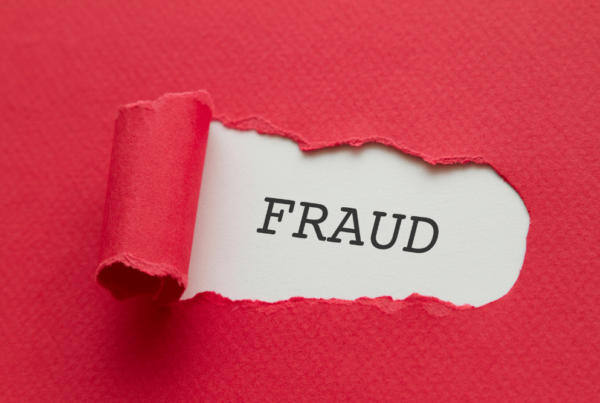FEDERAL CRIMES
Federal Drug Conspiracy Defense Attorneys
Federal Drug Conspiracy Crimes
Over one-fourth of all cases reported to the U.S. Sentencing Commission (USSC) each year involve drug related crimes. Of these federal drug crimes, the vast majority involve something beyond mere drug possession—distribution/trafficking and conspiracy. In spite of changes to federal drug laws over the past few decades and some indications of progress, the Federal Government maintains that controlled substance abuse and the efforts of the perpetrators of drug related offenses remain a threat to national safety and security. In response, federal agencies from the White House down to local law enforcement continuously step up their efforts to support what is now a global campaign to prosecute drug offenders who fuel and profit from the epidemic of drug abuse and associated violence in the U.S.
The Office of National Drug Control Policy, which is a component of the Executive Office of the President, funds federal, state, and local law enforcement agencies to support the investigation and prosecution of alleged drug offenders. The Department of Justice (DOJ), the Federal Bureau of Investigation (FBI), U.S. Customs and the Drug Enforcement Agency (DEA) are just a few of the other federal agencies involved in these efforts. The DOJ’s Narcotics and Dangerous Drugs Section (NDDS) is the investigative arm dedicated to the identification of drug offenders at all levels and coordinates the resources necessary to investigate and prosecute them.
What must the Government show to prove a drug conspiracy?
Unlike many other conspiracy offenses, which are often charged under the general conspiracy statute, 18 U.S.C. § 371, federal prosecutors are instructed to use one of two specific drug conspiracy statutes:
- 21 U.S.C. § 846, which criminalizes conspiracies to commit any of the offenses defined within the Controlled Substances Act (CSA) (21 U.S.C. §§ 801-904), or
- 21 U.S.C. § 963, which criminalizes conspiracies to commit any of the offenses established by the Controlled Substances Import and Export Act (CSIEA) (21 U.S.C. §§ 951-971).
Conspiracy is a frequent charge used by federal prosecutors because it can be charged even where the object crime has not been completed, which increases the likelihood of conviction.
To convict an alleged offender charged with either of the drug conspiracy statutes, a federal prosecutor must prove a number of elements beyond a reasonable doubt.
An agreement
At the heart of any drug conspiracy must be an agreement between two or more persons to engage in any drug related offense established by either the CSA, or the CSIEA. However, the Government does not have to prosecute, or even identify, any alleged co-conspirators. Inferring a conspiracy from the evidence presented is sufficient. Additionally, the acquittal of an alleged co-conspirator a guaranteed defense, unless all other alleged co-conspirators have been acquitted.
The agreement itself must be genuine. If one of two alleged conspirators only feigns agreement (as in the case of an informant or undercover law enforcement), then there is no conspiracy. An agreement must also be shown to be something more than mere association with individuals known to be involved in crime. However, the presence of an agreement can be established by solely circumstantial evidence, such as: both (or all) alleged offenders shown to be present during transactions in furtherance of the conspiracy; the nature of the relationship among alleged co-conspirators; and any other evidence showing a common design or joint understanding among alleged conspirators regarding the ultimate objective of the conspiracy.
No overt act required
Although the general conspiracy statute (§ 371) and some of the other conspiracy statutes require a federal prosecutor show that at least one of the alleged conspirators committed an overt act in furtherance of the conspiracy, conspiracies brought under the Controlled Substances Act (CSA) or the Controlled Substances Import and Export Act (CSIEA) do not require proof of an overt act.
When does a drug conspiracy begin and end?
A drug conspiracy, like any other conspiracy, is considered a continuing crime—beginning when an offender joins the scheme and ending when the objective of the conspiracy is either achieved or abandoned. The lack of active participation in the conspiracy does not constitute abandonment as long as the conspiracy continues and the alleged offender has not explicitly withdrawn involvement. Even a falling-out that leads to one of the alleged conspirators no longer participating leaves a defendant just as liable as his continuously active counterparts.
The alleged offender has the burden to show that he has withdrawn from a conspiracy. The alleged offender must show that he took some action to make his withdrawal clear to his co-conspirators, or that he tipped-off authorities to the conspiracy. If a defendant is successful in establishing withdrawal, he is no longer liable for any acts of his co-conspirators after the point of withdrawal but is still liable for the conspiracy charge.
What are the federal drug charges and possible penalties?
Offenders convicted under § 371 face up to five years’ imprisonment and fines as much as $250,000. The penalties for those convicted under either § 846, or § 963 are typically far more severe. Defendants are subject to the same penalties as those prescribed for the substantive offense that was the object of the conspiracy.
The potential penalties of the substantive offences vary widely depending on the particular statute(s) charged in a given offense. For example, a conviction of conspiracy to commit § 843(b) (the use of a communications facility (including cell phones and mail) in the commission of a drug crime) carries a base-line penalty of a maximum of 4 years in prison, fines of up to $250,000, or both. A defendant convicted under § 848 (participation in a continuing criminal enterprise (CCE)), in contrast, faces a base-line penalty of a minimum of 20 years in prison up to life, and as much as $2 million in fines for an individual; or, for defendants found to be a principal administrator, organizer or leader in the CCE face a life sentence, and those who intentionally kill or cause the intentional killing of an individual may be sentenced to death (§ 848(e)).
White Collar Crimes
Recent Posts






